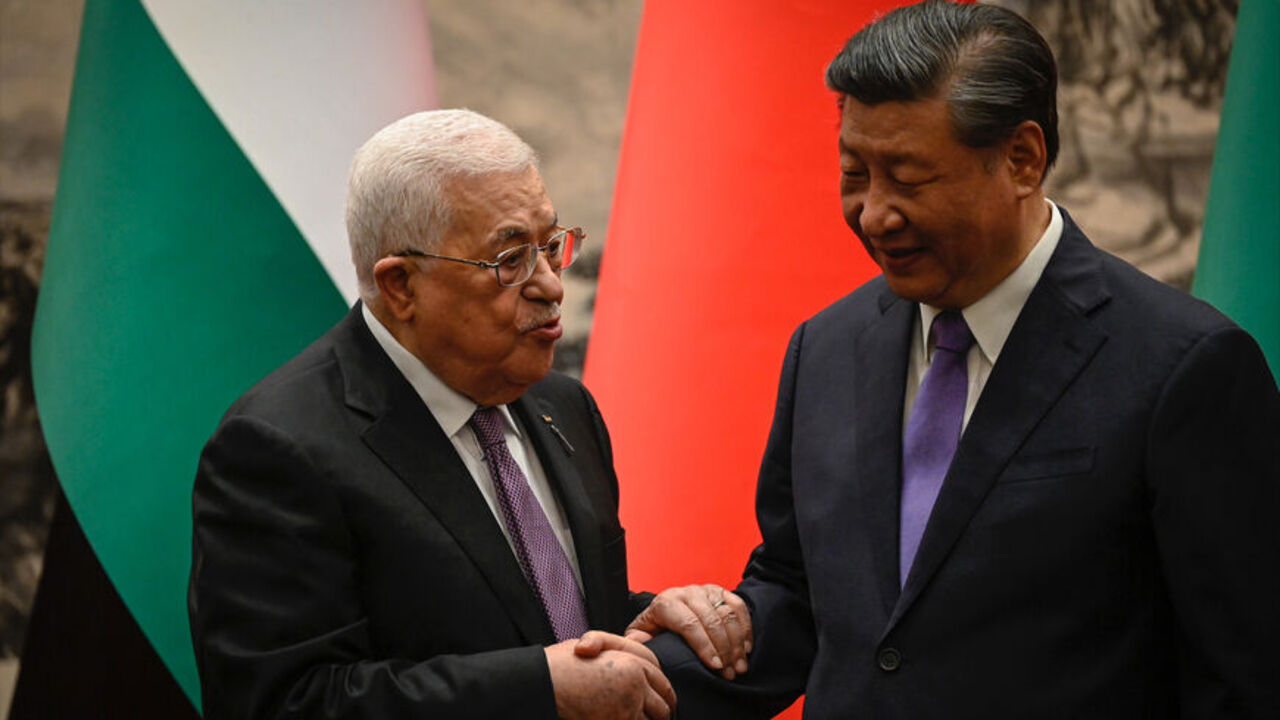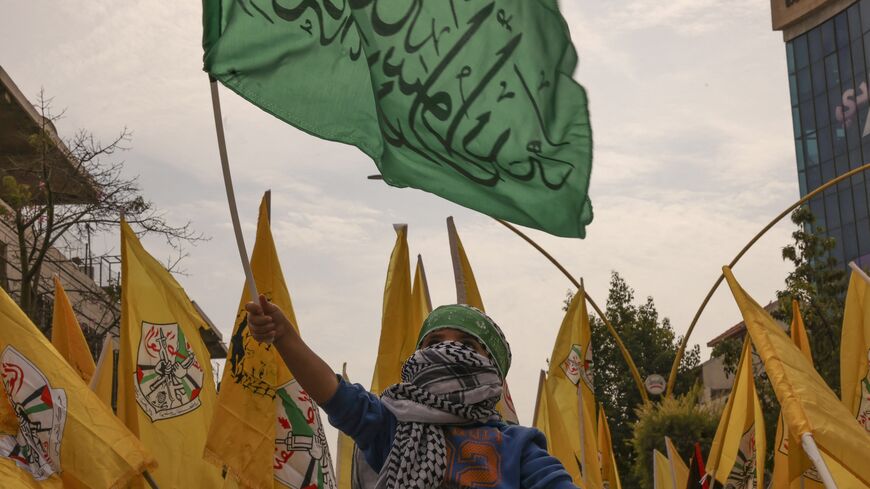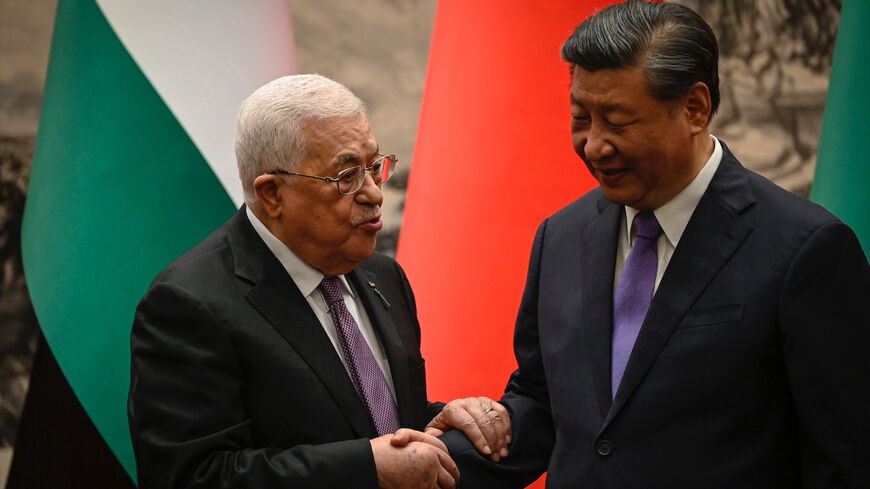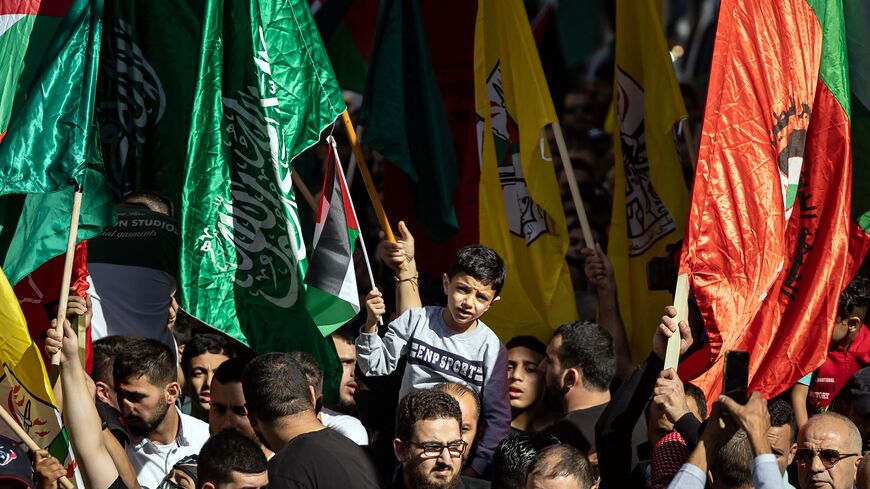Palestinian talks in China postponed as Hamas, Fatah trade blame
Hamas and Fatah were due to meet in Beijing this month, following talks in the Chinese capital in April aimed at unifying the rivals amid the war with Israel.

Palestinian factions said on Monday that planned reconciliation talks in China have been delayed, with both Hamas and Fatah blaming each other for the hold up and Chinese officials declining to offer details.
What happened: Fatah and Hamas were due to hold the talks this month, following a meeting they had in China in April. No exact date had been publicized for the planned talks, though media reports suggested they were set to take place end of June in Beijing.
Hamas said in a Monday statement that “an expanded meeting” with Palestinian factions was due to take place, referring to the planned talks in China. According to Hamas, “Chinese friends” had held meetings recently with the factions in preparation for this month’s meeting. Hamas added that Palestinian Authority (PA) President Mahmoud Abbas informed the Chinese side of his “refusal to participate in the expanded meeting, without providing any logical justifications and without any national dialogues."
In a statement of its own on Monday, Fatah said it still seeks to meet in China and expressed its “great appreciation” for the efforts by the People’s Republic to host the talks. “The Fatah movement confirmed it is still committed to sitting at the table of national dialogue in China,” read the statement. Fatah added that it “holds Hamas responsible for the failure of all dialogues that happened previously.”
Hamas official Basem Naim told Reuters Monday that Fatah had requested an indefinite delay, while Fatah spokesperson Abdel Fattah Dawla said the group had held talks with China about scheduling issues linked to “the complexities of events” in the war with Israel, according to the outlet.
Dawla said an unspecified alternative date was rejected by Hamas, though a Hamas official denied this, Reuters reported.
Chinese Foreign Ministry spokesperson Mao Ning did not offer any details when asked on Monday about the status of the talks.
“I have nothing to offer on that,” Mao told reporters.
Relations between Hamas and Fatah soured following the 2006 Palestinian elections, which Hamas won before seizing control in a violent coup in the Gaza Strip in 2007. The Fatah-led PA administers parts of the West Bank. Years of reconciliation talks hosted by Egypt, Turkey and others have not led to any agreement between the two.
Why it matters: Recent talks have aimed at unifying Fatah and Hamas within the PLO, a nationalist coalition led by the former. In March, Fatah and Hamas met in Russia and pledged to unify under the PLO umbrella.
The rival groups held more talks in China in April. Chinese Foreign Ministry spokesperson Lin Jian told reporters at the time that the factions “made encouraging progress.”
Gedaliah Afterman, a professor at Reichman University in Israel, told Al-Monitor in April that China's hosting of Palestinian factions in April is part of its efforts to "enhance its regional influence and present itself as a counterbalance to the United States."
Fatah official Muhammad Al-Lahham addressed the reconciliation efforts in an interview with Al-Arabiya earlier this month. Lahham told the outlet Fatah wants Hamas to join the PLO but has not asked the group to recognize Israel.
But prospects of reconciliation between the two rival groups have long seemed distant. Abbas criticized Hamas at the Arab League summit in Riyadh in May, referring to its Oct. 7 attack on Israel as "unilateral" and saying it "provided Israel with more pretexts and justifications to attack the Gaza Strip." Hamas expressed its "regret" in response to Abbas' remarks.
Hamas rejects the two-state solution, per its 1988 charter, and calls for an Islamic state in modern-day Israel, the West Bank and Gaza. Hamas floated some acceptance of Israel in a 2017 political document, citing “national consensus,” but reiterated its opposition to “any alternative to the full and complete liberation of Palestine, from the river to the sea,” according to The Associated Press.
The PLO declared its support for a two-state solution in 1988.







